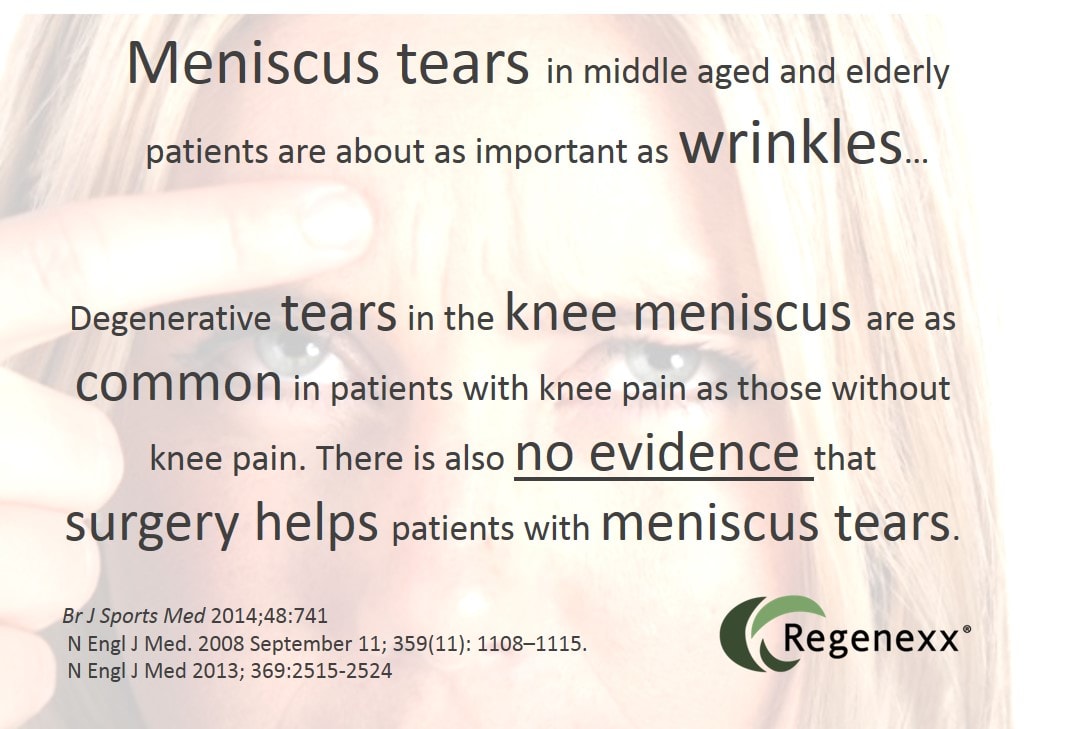Meniscus Tear Surgery or Not? Meniscus Tears are Like Wrinkles…
Meniscus tear surgery or not? That is the question of the 21st century. You might be surprised to hear that in the vast majority of instances, the research clearly says “not”.
The meniscus is a shock absorber in the knee. It acts as a spacer between the cartilage surfaces and it also helps to guide motion. It can be torn in young people during sports or just tear or get worn and torn in aged and elderly patients.
Meniscus tear surgery is the most common orthopedic procedure performed in the world. Despite this distinction, many large studies have shown that surgery for a torn meniscus doesn’t work. This past month an important opinion article was published in the British Journal of Sports Medicine. It was important not because it revealed new research, but because it said something in an important medical journal that needed to be said. Meniscus tears are like wrinkles.
We all get wrinkles as we age, they are unavoidable. Some of us get more of them at a young age and some of us don’t get a lot of them until we’re older. So it goes with meniscus tears. The meniscus gets small tears as we age and as the knee joint begins to wear out. Some patients may get them younger and some older, but the research shows we should be as concerned with them as we are with wrinkles.
For example, in middle-aged and elderly patients, taking an MRI of patients with no knee pain and those with ongoing knee pain will reveal that both groups have about the same amount of meniscus tears. if these things usually don’t cause pain, why are we operating on them? If our surgeries are no better than fake surgeries, why are we placing all of these patients at the risk of surgical complications?
The upshot? We deal with meniscus tears as targets that may be ripe for healing with platelets or stem cells. Not as pieces of tissue to be surgically removed. Either way, getting freaked out about a meniscus tear on your MRI isn’t advised, as it’s still far too easy to find a surgeon who will operate on the tear despite no scientific evidence that the surgery will help you in any way.

NOTE: This blog post provides general information to help the reader better understand regenerative medicine, musculoskeletal health, and related subjects. All content provided in this blog, website, or any linked materials, including text, graphics, images, patient profiles, outcomes, and information, are not intended and should not be considered or used as a substitute for medical advice, diagnosis, or treatment. Please always consult with a professional and certified healthcare provider to discuss if a treatment is right for you.

